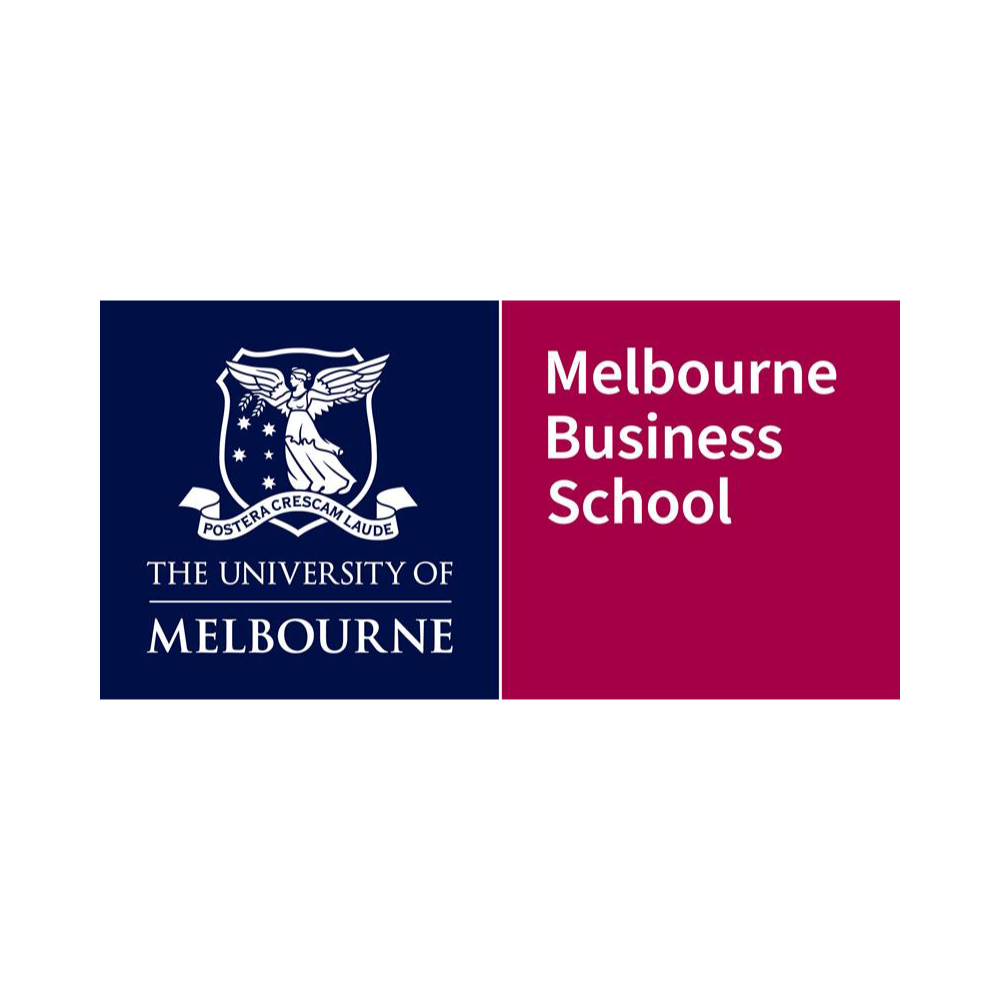
For businesses to succeed, they must be guided by visionary and adaptive leaders who possess the skills to steer their teams through challenging times and seize opportunities.
This article explores the significance of leadership frameworks and models to help guide these leaders now and into the future. We will also delve into the importance of effective leadership in the contemporary business world and the role MBA programs play in cultivating strong leaders.
Can leadership be learned? Using leadership frameworks for success
It’s the eternal question in business — can leadership be learned? The answer is yes, but it takes some practice.
Tom Adam, the founder and creative lead at curiousGrowth, knows leadership takes time to develop. As a former employee of a large organisation, he knows how poor leadership can affect a workforce. “What I have issues with is that if you don’t translate the vision, aims and goals of an organisation down to the working level, people don’t understand why they’re doing what they’re doing.”
Good leaders are effective communicators, understand emotions, can think strategically and know how to build connections. While experience enables leaders to grow, ongoing education also helps sharpen skills. You don’t become a good leader overnight. Leadership skills are learned, evolve and need to be practised. Even the most experienced leaders encounter new challenges.
A leadership framework is a tool that can help all leaders.
What is a leadership framework?
Effective leaders and managers often use a leadership framework as a guide to understand, develop and apply their leadership skills and qualities to their teams. The framework consists of principles that outline the knowledge, skills and actions required of leaders.
In clearly outlining what’s needed, this framework provides consistent standards and practical tools.
Many organisations have developed their own framework models. One such framework consists of three key components. Each component is guided by a set of principles. The three components and their principles are:
- Leading people: These principles guide the day-to-day management of people and cover aspects such as creating a safe environment, building teams, rewarding hard work and facilitating ongoing improvement.
- Leading yourself: This component’s principles are about understanding your role and development as a leader, understanding the roles of others and managing internal relationships.
- Leading the organisation: This is underscored by the principles of designing and overseeing work systems, applying business strategies, managing strategic relationships and building the capability of teams.
As a leader, your framework will be unique to you and your team and might change over time as the organisation and your leadership style grow and evolve.
Why is a leadership framework important?
For leaders and managers, a framework has many benefits, including:
- providing clarity around their role and the role of others
- giving them clear direction on who is responsible for what
- offering an understanding of how to build successful work relationships
- providing clear direction on management issues
- giving guidance on developing the skills of team members
For the organisation, a framework:
- provides consistency for leadership teams across the organisation
- builds a culture of trust
- provides a common language throughout the entire organisation
- improves employee engagement and efficiency
How to create a leadership framework
An effective leadership framework is tailor-made for an organisation, so it’s important that the framework isn’t just borrowed from another organisation and that leaders are involved in its creation. Take time to understand why you’re creating a framework and what changes you want to see in your organisation as a result of it. When creating a leadership framework for your organisation, here are some elements worth including:
- the skills and knowledge leaders are expected to have
- the different leadership styles they might employ
- the values leaders are expected to maintain
- how leaders can set strategic goals and guide their teams towards that vision
- the importance of adaptability and how leaders can manage change
- an emphasis on the importance of communication, collaboration and team building
- problem-solving skills that leaders might employ
- how leaders should seek feedback and take time for self-reflection
- activities leaders can undertake such as training and coaching to develop their skills
Creating a framework that works takes time and it can be a challenge. Here are some tips for getting it right. The framework should:
- be concise and easy to use
- be written in an accessible way in plain English
- contain language or content that is inclusive
- be as specific as possible
- be clear about the objectives of each element
- be comprehensive enough to take in all the skills, knowledge and behaviours needed for success
- be written in a way that ensures competencies are measured fairly
- cover all skills and deliverables required by all leaders in the organisation
What makes an effective leader?
Effective leaders can successfully implement business strategies, identify and seize opportunities, train other leaders, build a better culture and increase business profits. Employee experience and retention are also inextricably tied to the types of leaders in an organisation. According to a 2024 report, 83 per cent of Australian employees feel more productive at work if they view their managers as supportive.
As such, organisations and recruiters are always on the lookout for skilled leaders.
How to learn leadership skills
Effective leadership skills are vital for the success of an organisation, individual teams and the leaders themselves. So, how can current and future leaders equip themselves with the skills they need to be the leaders businesses want and need? Many are turning to MBA courses to help set them on the path to success.
MBAs cultivate leadership skills by offering insights into leadership frameworks, models and strategic approaches. They help you define your leadership learning objectives. Upon graduation, you’ll emerge with a strong theoretical understanding of leadership and well-developed skills in practical leadership and management, critical thinking, strategic decision-making and emotional intelligence.
Adam studied for his executive MBA from 2016 to 2020. He started his studies when he decided to take his martial arts and fitness business full-time. “I wanted to understand how to get my business to a point that was beyond me.”
He says the program gave him an understanding that an organisation’s vision, mission and values are important in leadership. But learning continues even after you graduate with an MBA. “You need to continue your learning afterwards. Use it to get the right people around you to give you advice so you can apply that thinking going forward.”
Adam found the design thinking unit helped him hone his creative problem-solving skills for his business. He values the development of soft skills such as networking and relationship building. “You have to learn how to articulate things to people with different backgrounds. Those relationships that you form through networking, I see them as longer term. I treat them as my really good friends.”
Develop your leadership with an MBA program
Given the increased pressures on organisations and their leaders, it’s no surprise that recruiters are seeking managers with strong leadership abilities. If you’ve decided an MBA is the best way for you to gain these valuable skills, where do you go from here?
The first step is to find the right MBA course that can help you become a great leader. You can find many MBA programs offering core and elective leadership units designed for existing and emerging leaders. These units allow you to develop an understanding of essential strategies and the best practices in effective business leadership. You can learn about current and future leadership challenges, contemporary management styles to improve organisations and how to motivate your team to help them achieve business objectives.
For example, CQUniversity's online Master of Business Administration (Leadership) program offers the Contemporary Leadership unit, which focuses on contemporary leaders’ contribution to the evolution of organisations. This involves analysing the effectiveness of diverse leadership models, principles, frameworks and methods capable of improving individual, group and organisational productivity.
The Master of Business Administration Sustainable Leadership program from Charles Darwin University features the Resilience Management and Leadership unit. In this unit, you will learn to critically evaluate how modern management and leadership practices can contribute to building resilient organisations. This enables you to identify the most effective courses of action for a given situation, fostering resilience and sustainability on the organisational level.
Melbourne Business School's online MBA course contains the Leadership in a Changing World unit, where you learn how to become a leader who can survive and thrive in a complex and uncertain business landscape, driven by forces such as technological advances and globalisation.
These units allow you to develop an understanding of essential strategies and the best practices in effective business leadership. You can learn about current and future leadership challenges, contemporary management styles to improve organisations and how to motivate your team to help them achieve business objectives.


CQUniversity’s Master of Business (Leadership) is an online program designed for entrepreneurs, business owners and corporate managers. This course allows you to gain insights into the strategies, practices and key communication skills underpinning effective business leadership. Delivered entirely online, this program offers you an affordable, fresh and compelling graduate educational experience. You will not be bound by term dates or submission deadlines, allowing you to study when it's convenient for you.
The curriculum covers essential business functions and emphasizes leadership in contemporary business settings. This course will develop your capabilities to identify opportunities, resolve problems, create innovative solutions and be entrepreneurial.


The Master of Business Administration Sustainable Leadership program will guide you through how businesses can operate both profitably and in a manner that supports society, the economy and the environment.
You can gain core MBA competencies and the essential knowledge and skills required by sustainable enterprises and businesses of the future. This includes learning how to develop effective sustainability and CSR strategies, design and implement sustainability initiatives, and provide sustainability disclosure and reporting.


Developed in line with global best practices, the Melbourne Business School Online Master of Business Administration (MBA) has a rigorous and comprehensive offering of subjects that will prepare you for important and demanding careers, both domestically and internationally.
Supported by the best in business and connected to a network of like-minded professionals, the online MBA program prepares you to ignite ideas, lead organisations and meet change head-on.
Your leadership career starts here
Ready to be the leader you’ve always aspired to be? An MBA can help you become the visionary leader recruiters are seeking. Discover various MBA programs available in Australia and pick the most suitable course that can help you get where you need to be in your leadership journey.



















